Great Moments From Shakespeare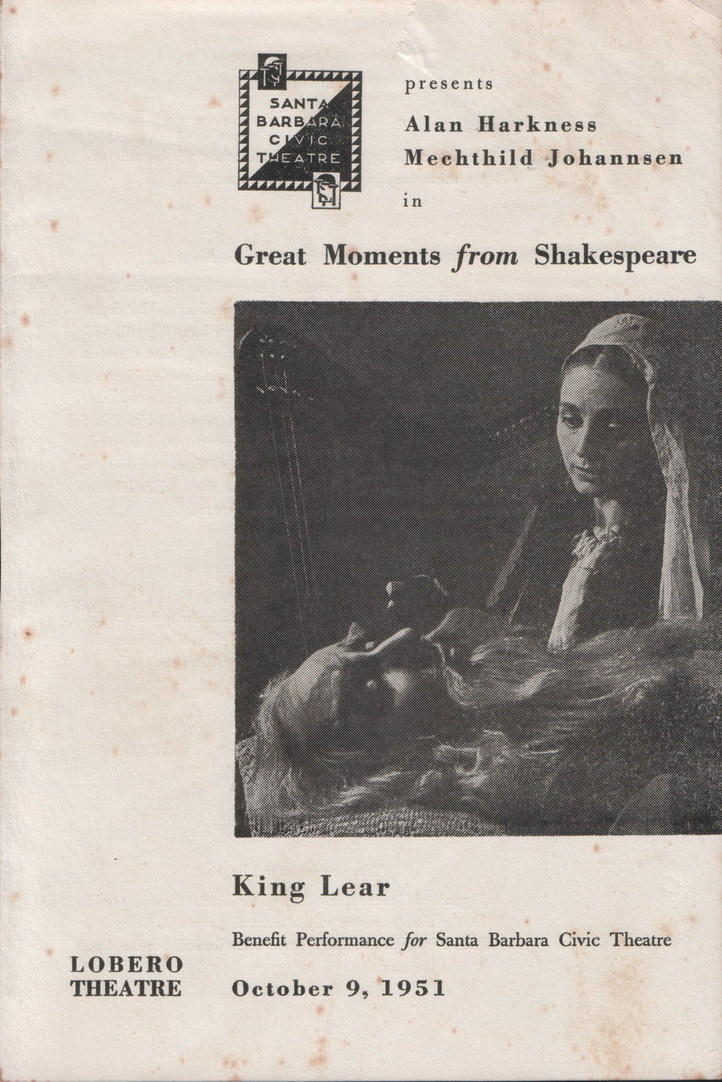 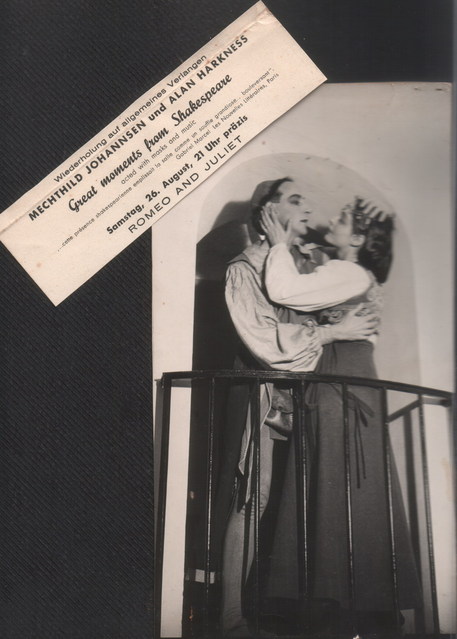 Images from Romeo and Juliet ![Romeo and Juliet text Romeo and Juliet text, Text:
5 Scene
R&J
Parting Enter Romeo and JuLieT, above, at the window.]
jULIet. Wilt thou be gone? it is not yet near day: It was the nightingale, and not the lark,
That pierced the fearful hollow of thine ear;
Nightly she sings on yond pomegranate-tree:
Believe me, love, it was the nightingale. ROMEO. It was the lark, the herald of the morn, No nightingale: look, love, what envious streaks
Do lace the severing clouds in yonder east: Night's candles are burnt out, and jocund day
Stands tiptoe on the misty mountain tops: I must be gone and live, or stay and die.
jULIET. Yond light is not day-light, I know it, I: It is some meteor that the sun exhales, To be to thee this night a torch-bearer,
And light thee on thy way to Mantua:
Therefore stay yet; thou need'st not to be gone.
ROMEO. Let me be ta'en, let me be put to death;
I am content, so thou wilt have it so.
I'll say yon gray is not the morning's eyd,
'Tis but the pale reflex of Cynthia's brow; Nor that is not the lark, whose notes do beat
The vaulty heaven so high above our heads:
I have more care to stay than will to go:
Come, death, and welcome! Juliet wills it so. How is't, my soul? let's talk: it is not day.
jULIET. It is, it is: hie hence, be gone, away! It is the lark that sings so out of tune,
Straining harsh discords and unpleasing sharps.
Some say the lark makes sweet division;
This doth not so, for she divideth us:
Some say the lark and loathed toad change eyes
O, now I would they had changed voices too! Since arm from arm that voice doth us affray,
Hunting thee hence with hunts-up to the day.
O, now be gone; more light and light it grows.
ROMEO. More light and light: more dark and dark our woes!
Enter nuRse, to the chamber. NURSE. Madam!
jULIET. Nurse?
NURSE. Your lady mother is coming to your chamber: The day is broke; be wary, look about.
jULIET. Then, window, let day in, and let life out.
[Exit.
ROMEO. Farewell, farewell! one kiss, and I'll descend.
[Descends.
JULIET. Art thou gone so? my lord, my love, my friend! I must hear from thee every day in the hour,
For in a minute there are many days:
O, by this count I shall be much in years
Ere I again behold my Romeo!
ROMEO. Farewell!
I will omit no opportunity
That may convey my greetings, love, to thee.
JULIET. O, think'st thou we shall ever meet again? ROMEO. I doubt it not; and all these woes shall serve
For sweet discourses in our time to come.
JULIET. O God! I have an ill-divining soul.
Methinks I see thee, now thou art below,
As one dead in the bottom of a tomb:
Either my eyesight fails or thou look'st pale.
ROMEO. And trust me, love, in my eye so do you:
Dry sorrow drinks our blood. Adieu, adieu!
[Exit.
JULIET. O fortune, fortunel all men call thee fickle: If thou art fickle, what dost thou with him
That is renown'd for faith? Be fickle, fortune;
For then. I hope, thou wilt not keep him long,](image/1/_W2tdZJ68paTRfX4T14JqQ508875/GW714H1070.jpg) . 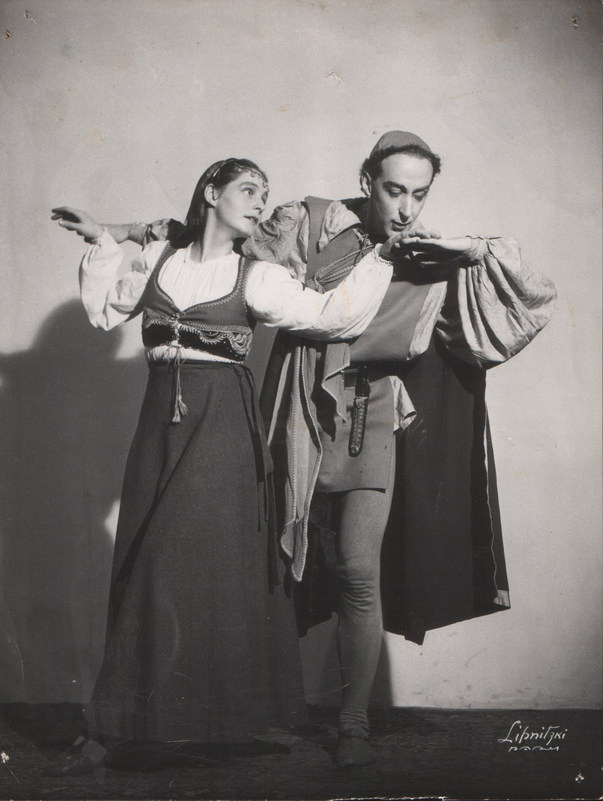 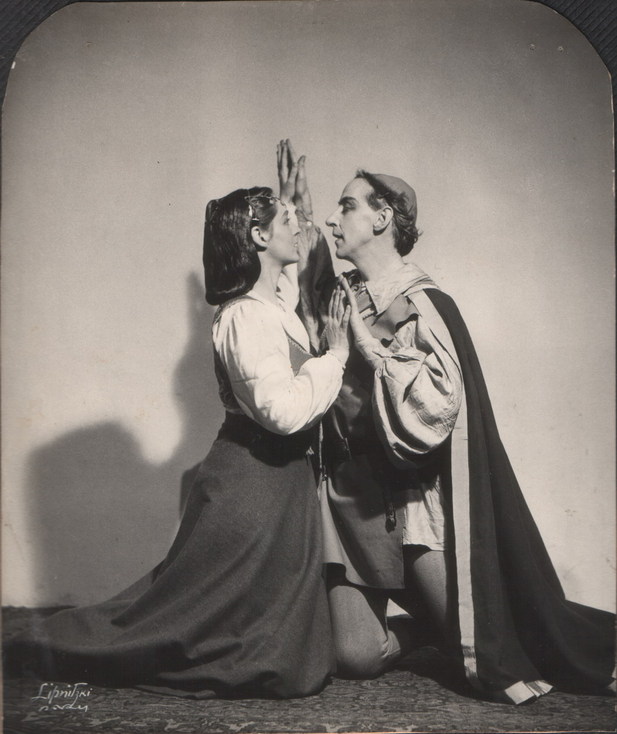 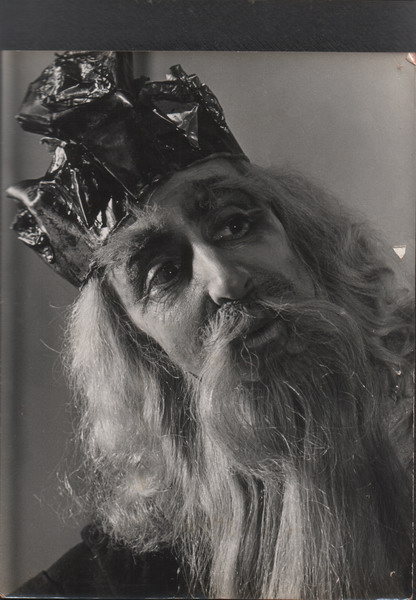 Images from King Lear Program - notes on scenes performed 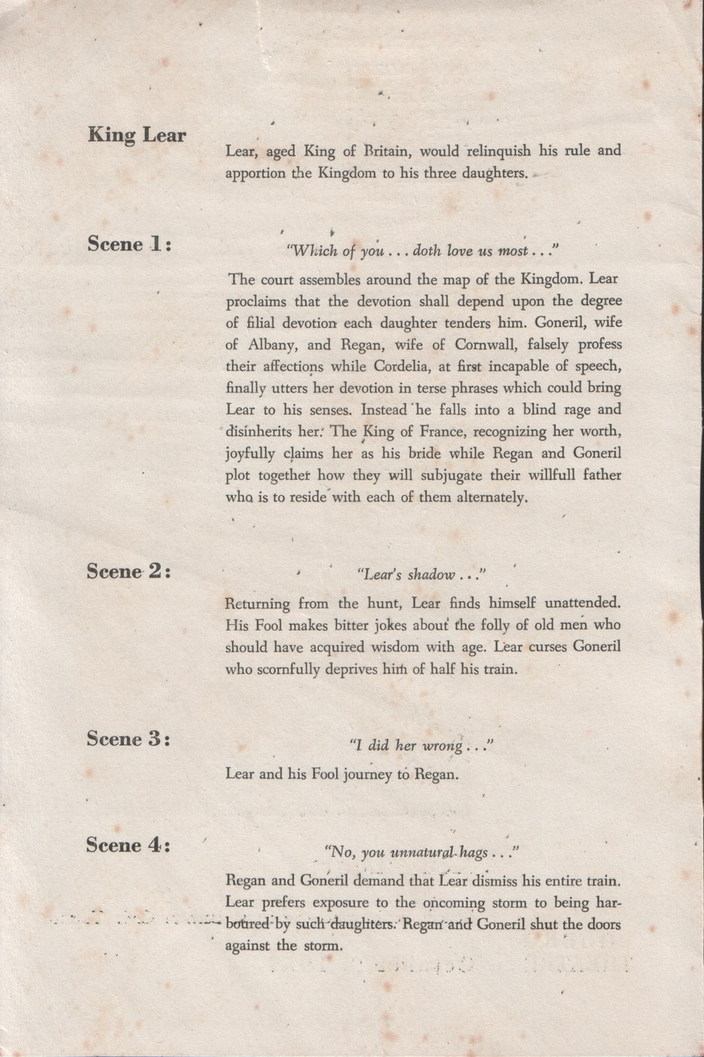 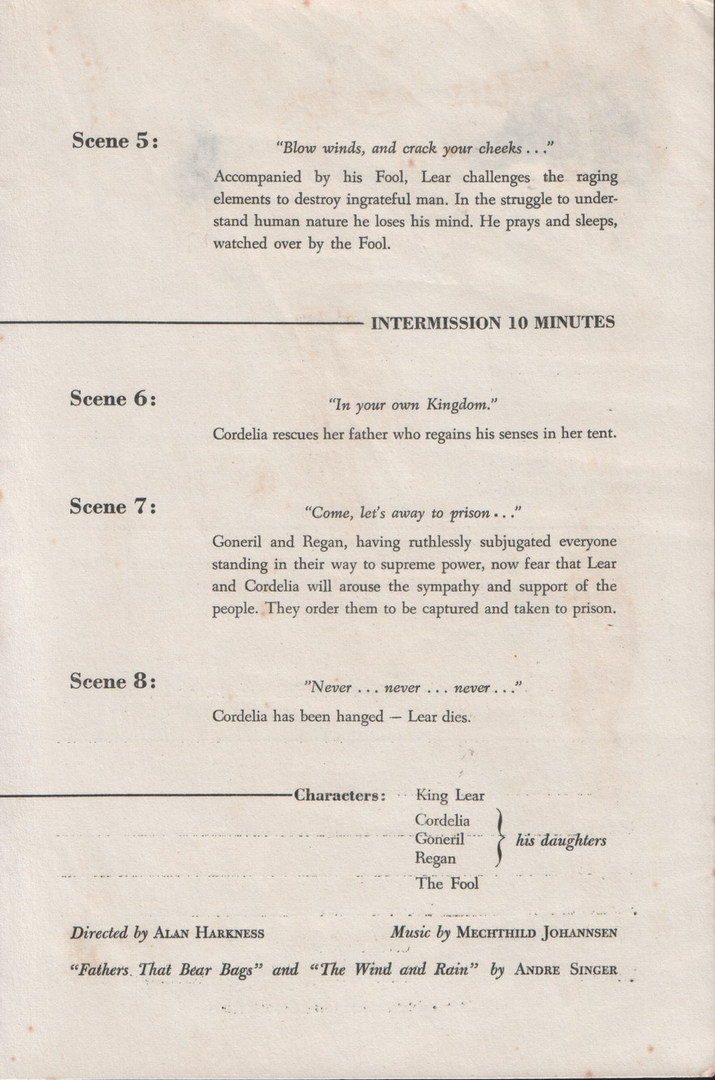 Page from script ![King Lear - Mechthild Harkness King Lear - Mechthild Harkness, Text:
16. zieme
wear
on entrame
※b/カメント
KING LEAR
Scene
TV
Lear. Deny to speak with me? They are stek?
they are weary?
The king would speak with Cornwall;
the dear other
Wond with his canenter speak. commands
her sePara
se they inform'd of thie? My breath and
blood! Go tell the duke and's wife I 'ld speak with them, Now, presently: bid them come forth and hear me,
Or at their chamber-door I'L beat the drum
Till it cry steep to death.
Regan. Iam glad to see your highness. Lear. Regan, I think you are; I know what reason O I have to think so: If thou shouldst not be glad, I would divorce me from thy mother's tomb,
Sepulchring an adultress
Regan. I pray you, sir, take patierce:
LEAR:
?. Beloved Regan, Thy sister's naught: O Regan, she hath tied
Sharp-tooth'd unkindness, like a vulture, here:
[Points to his hearl. I can scarce speak to thee; thou 'It not believe
With how depraved a quality--O Regan!
REGaN
> I have hope
You less know how to value her desert
Than she to scant her duty.
Lear.
Say, how is that? Regan. I cannot think my sister in the least Would fail her obligation: if, sir, perchance
She have restrain'd the riots of your followers,
'Tis on such ground and to such wholesome end s*
As clears her from all blame.
Lear. My curses on her!
Regan.
O, sir, you are old; Nature in you stands on the very verge Of her confine: you should be ruled and led By some discretion that discerns your state Better than you yourself. Therefore I pray you
That to our sister you do make return;
Say you have wrong'd her, sir.
Lear.
Ask her forgiveness?
Do you but mark how this becomes the house:
[Kneeling] 'Dear daughter, I confess that I am old;
Age is unnecessary: on my knees I beg That you'll vouchsafe me raiment, bed and food.'
Regan. Good sir, no more; these are unsightly tricks:
Return you to my sister.
Lear.
(Rising] Never Regan:
She hath abated me of half my train; Look'd black upon me; struck me with her tongue,
Most serpent-like, upon the very heart: All the stored vengeances of heaven fall
On her ingrateful top! Strike her young bones,
You taking airs, with lameness,
TRUMPET](image/1/GN5Qnvb8GWi5xtj8vE0Lbg495506/GW671H854.jpg) 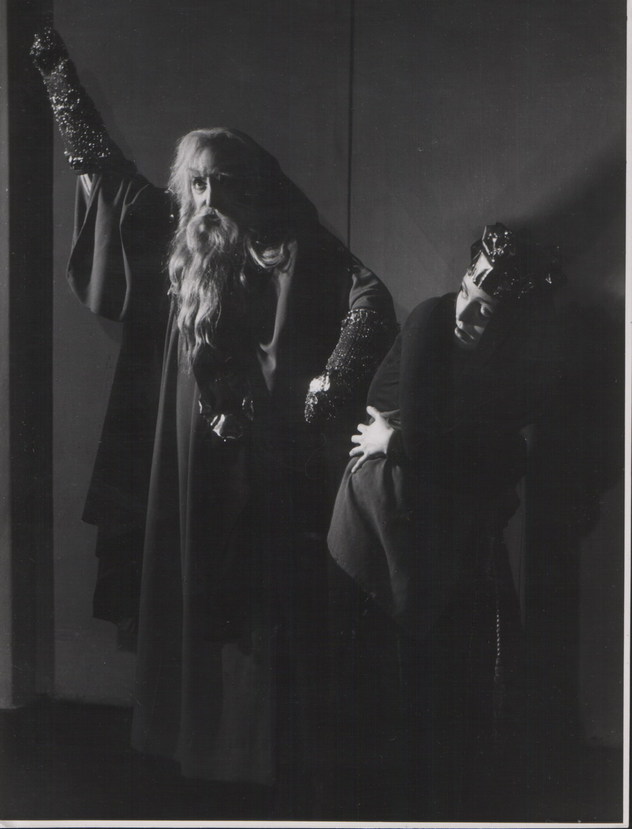 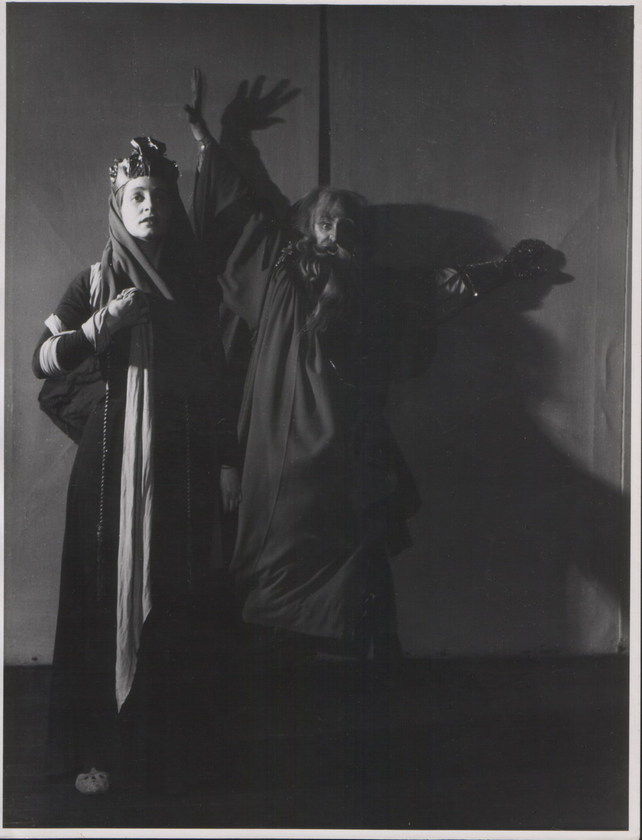 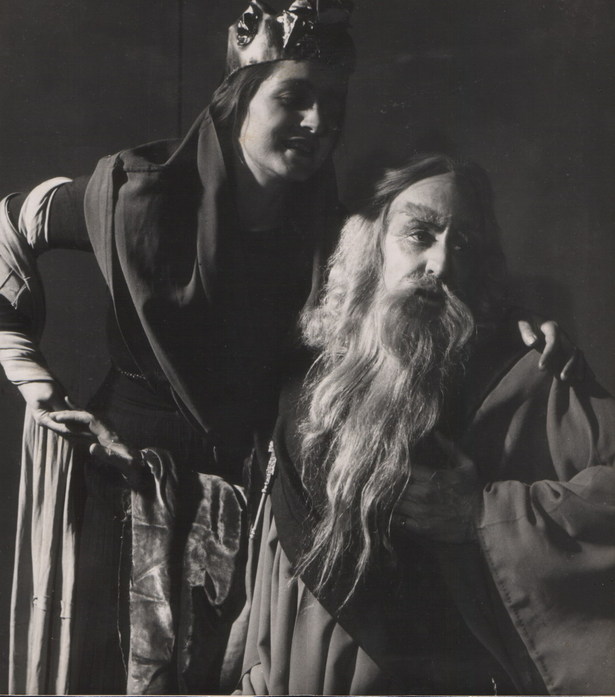 ![King Lear - Mechthild Harkness King Lear - Mechthild Harkness, Text:
700.on
aunt
11 before
King Lear
Scene I
curtain
LEAR: Blow, winds, and crack your cheeks! rage
11BIS
before speech -
achon
begin:
You catara-ts and hurricanoes, spout
Till you have drench'd our steeples, drown'd the cocks! You sulphurous and thought-executing fires,
Vaunt-couriers to oak-cleaving thunderbolts,
Singe my white head! And thou, all-shaking thunder,
Smite flat the thick rotundity o' the world! Crack nature's molds, all germins spill at once
That make ingrateful man! Fool. O nuncle, court holy-water in a dry house is better than this rain-water out o' door. Good nuncle, in, and ask thy daughters' blessing: here's a night pities neither
man nor fool.
Lear. Rumble thy bellyful! Spit, fire! spout, rain.
Nor rain, wind, thunder, fire, are my daughters:
I tax not you, you elements, with unkindness; I never gave you kingdom, call'd you children, You owe me no subscription: then let fall Your horrible pleasure; here I stand, your slave,
A poor, infirm, weak and despised old man: But yet I call you servile ministers, That have with two pernicious daughters join'd Your high-engender'd battles 'gainst a head
So old and white as this, 0! 0! 'tis foul!
Fool. He that has a house to put 's head in has a good head-
gième
as shesingi
piece.
The cod-piece that will house
5 Before the head has any, The head and he shall louse
So beggars marry many.
The man that makes his toe
What be his beart should mak Shall of a corn cry woe,
And turn his sicep to wake. Lear. No, I will be the pattern of all patience; I will say
nothing.
My wits begin to turn. Come on, my boy: how dost, my boy? art cold?
am cold myself. Mine jo this s Poor fool and knave, I have one part in my bea
That's sorry yet for tbee.
Fool. [Singing]
He that has and a little ting
Must make content
For the rain it raineth
Lear.
True, my](image/1/j3uIDT81VrKRd8uCruz26w450851/GW635H837.jpg) 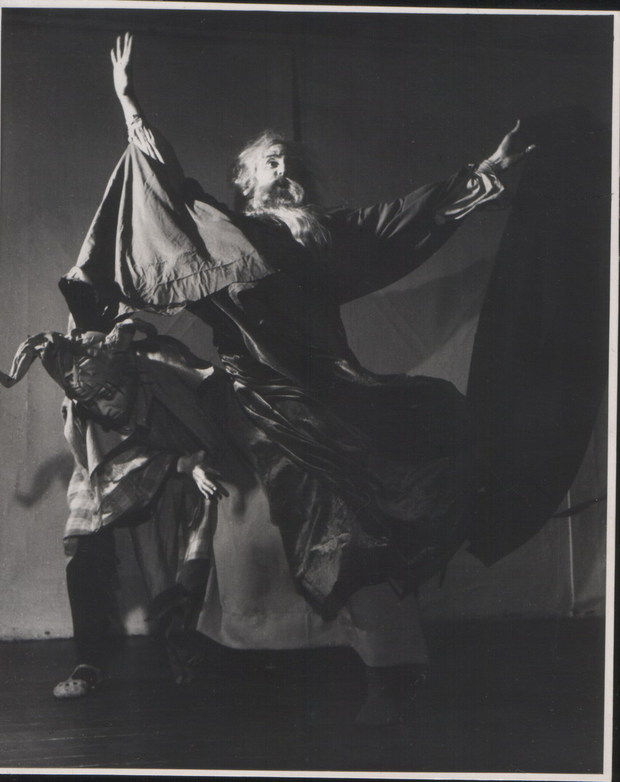 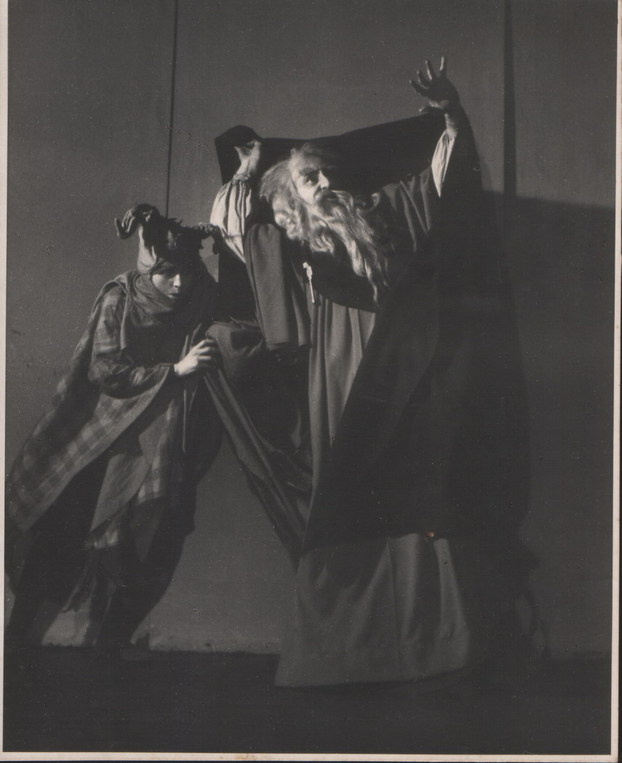 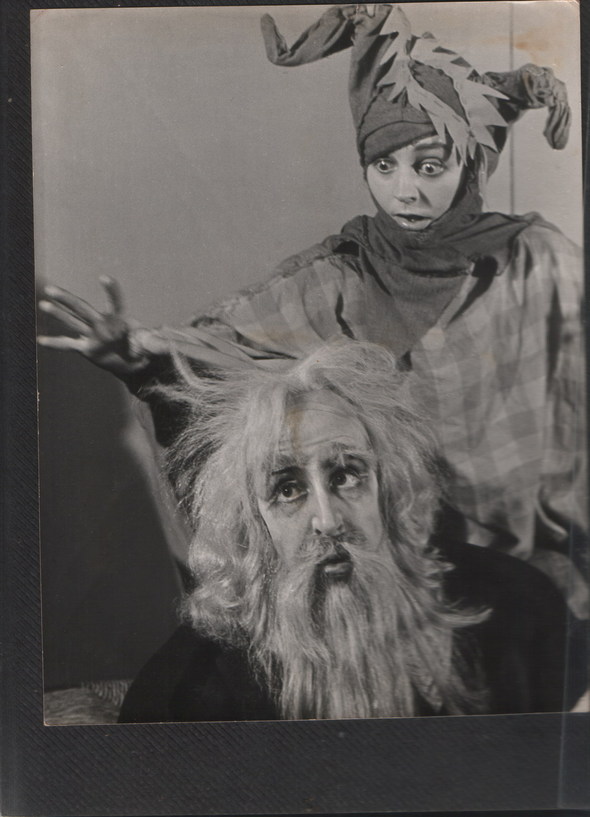 Images from Macbeth 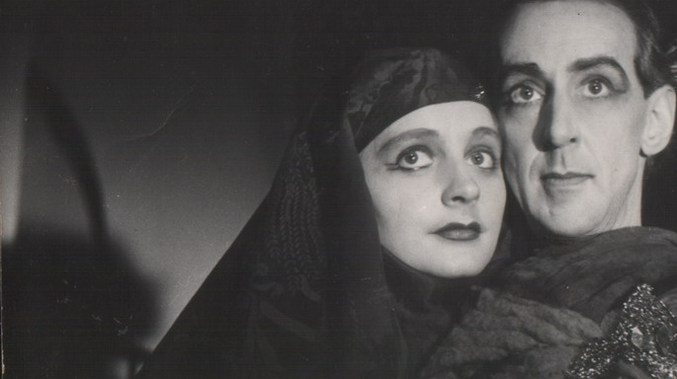 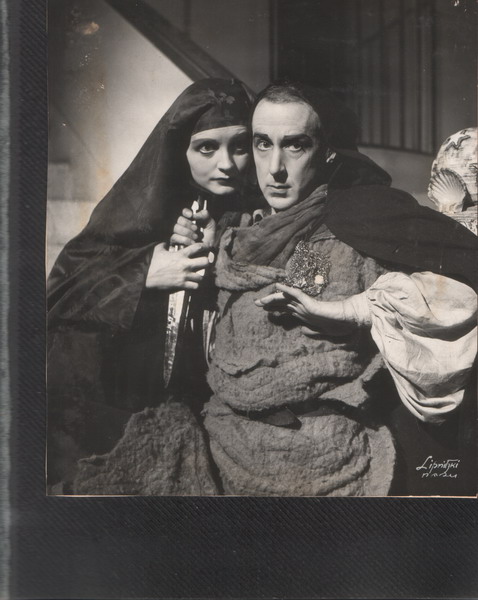 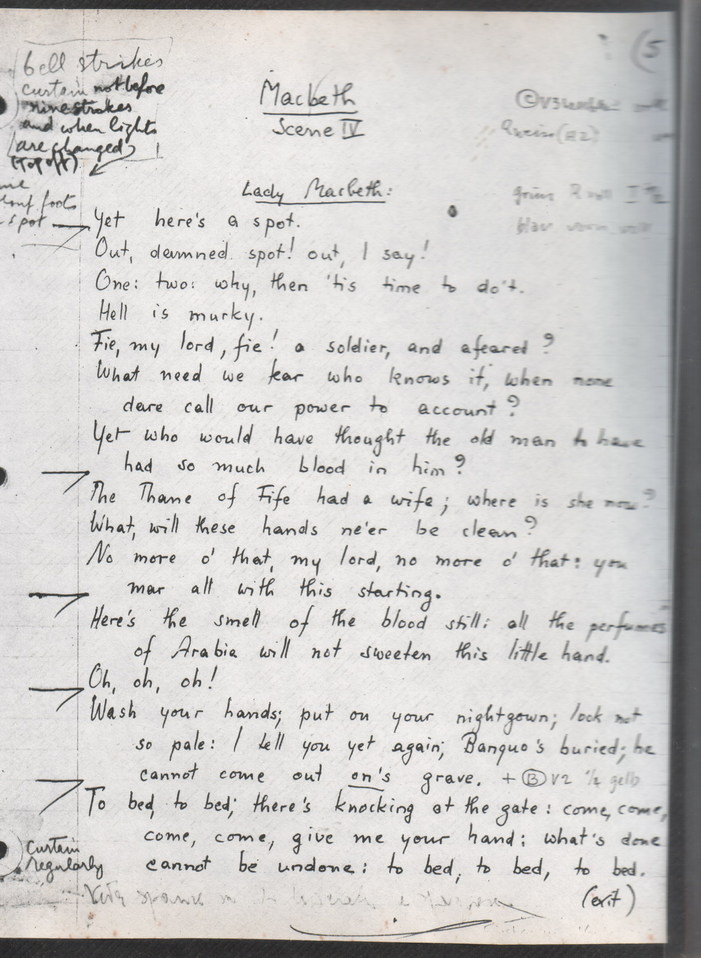 Programme for Santa Barbara performance, 1951. 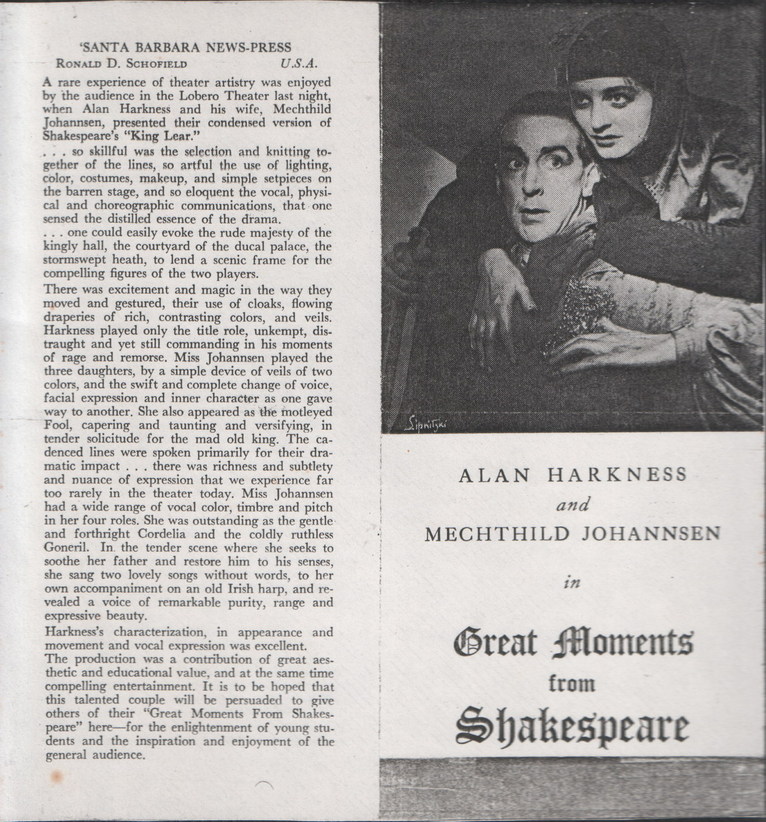 Review quotes taken from European performances. For further reviews and programs see Reviews and Clippings 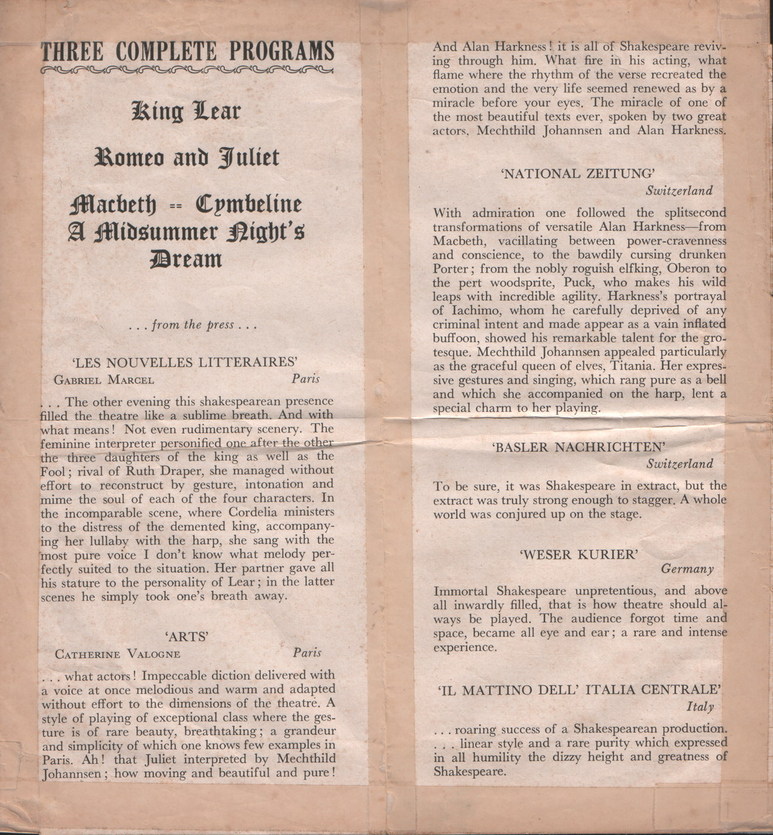 |
mechthildharkness.net © 2005-2023 by various authors (of mechthildharkness.net) is licensed
under Attribution-NonCommercial-ShareAlike 4.0 International
